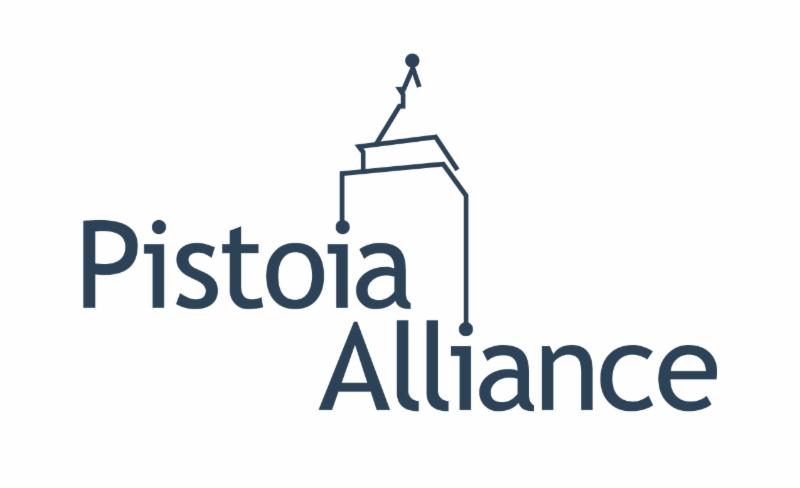 The Pistoia Alliance, a global, not for profit alliance that works to lower barriers to innovation in life sciences R&D, is calling upon the industry to improve collaborative efforts to use patient data to its full effect. In a series of keynote speeches delivered at The Pistoia Alliance’s annual member conference in London, speakers from Amgen, Accenture and AstraZeneca, discussed the need to more closely connect outcomes data with the R&D process – to help pharmaceutical companies focus their research efforts and deliver real benefits to patients. Building machine learning and deep learning systems, and incorporating data from therapeutic interventions or diagnostics into R&D is technologically challenging, and would benefit significantly from industry-wide pre-competitive collaboration...
The Pistoia Alliance, a global, not for profit alliance that works to lower barriers to innovation in life sciences R&D, is calling upon the industry to improve collaborative efforts to use patient data to its full effect. In a series of keynote speeches delivered at The Pistoia Alliance’s annual member conference in London, speakers from Amgen, Accenture and AstraZeneca, discussed the need to more closely connect outcomes data with the R&D process – to help pharmaceutical companies focus their research efforts and deliver real benefits to patients. Building machine learning and deep learning systems, and incorporating data from therapeutic interventions or diagnostics into R&D is technologically challenging, and would benefit significantly from industry-wide pre-competitive collaboration...
Accenture
See the following -
The Big Get Bigger, Until They Don't
 You may have missed it, but the Open Markets Institute released a report on what it calls "America's Concentration Crisis." The report begins bluntly: "Monopoly power is all around us: as consumers, business owners, employees, entrepreneurs, and citizens." As David Leonhardt wrote in his op-ed about the report, "The federal government, under presidents of both parties, has largely surrendered to monopoly power." Their associated data set details market concentration within 32 industries, several of which are health related. For example, in electronic health record systems, the top 3 firms account for 58% of the market, whereas in pharmacies/drugstores, the top 3 control 67% (and the top 2 alone have 61% share).
You may have missed it, but the Open Markets Institute released a report on what it calls "America's Concentration Crisis." The report begins bluntly: "Monopoly power is all around us: as consumers, business owners, employees, entrepreneurs, and citizens." As David Leonhardt wrote in his op-ed about the report, "The federal government, under presidents of both parties, has largely surrendered to monopoly power." Their associated data set details market concentration within 32 industries, several of which are health related. For example, in electronic health record systems, the top 3 firms account for 58% of the market, whereas in pharmacies/drugstores, the top 3 control 67% (and the top 2 alone have 61% share).
- Login to post comments
The Pistoia Alliance Calls on the Life Sciences to Support Greater Collaboration to Overcome Technology Challenges
- Login to post comments
The Postmodern EHR: The Data Layer
 This second approach entails defining a data layer, which is the most important aspect of the Postmodern EHR architecture from my previous post. Why is this the most important layer? Most healthcare organizations are beginning to realize that their data is more valuable than their applications. Data has become a key asset, since good data is key to improving outcomes, managing chronic disease and enabling population health management. And it needs to be managed for the lifetime of the patient. Which application is going to last that long? What happens to health data when we switch applications?
This second approach entails defining a data layer, which is the most important aspect of the Postmodern EHR architecture from my previous post. Why is this the most important layer? Most healthcare organizations are beginning to realize that their data is more valuable than their applications. Data has become a key asset, since good data is key to improving outcomes, managing chronic disease and enabling population health management. And it needs to be managed for the lifetime of the patient. Which application is going to last that long? What happens to health data when we switch applications?
- Login to post comments
US Defense Think Tank Calls for DoD to Adopt the Open Source VistA EHR and Avoid Closed and Proprietary EHRs.
 One of the most prestigious U.S. defense think tanks, the Center for a New American Security (CNAS), issued a white paper Thursday calling on the Department of Defense (DoD) to replace their existing dysfunctional “vendor-lock” medical records system with an electronic health records system (EHR) that is "extensible, flexible and easy to safely modify and upgrade as technology improves and interoperability demands evolve." The white paper warns that a "closed and proprietary" commercial EHR - such as the ones offered by Epic, Cerner or Allscripts - will lead to "vendor-lock” and isolation of health data. Read More »
One of the most prestigious U.S. defense think tanks, the Center for a New American Security (CNAS), issued a white paper Thursday calling on the Department of Defense (DoD) to replace their existing dysfunctional “vendor-lock” medical records system with an electronic health records system (EHR) that is "extensible, flexible and easy to safely modify and upgrade as technology improves and interoperability demands evolve." The white paper warns that a "closed and proprietary" commercial EHR - such as the ones offered by Epic, Cerner or Allscripts - will lead to "vendor-lock” and isolation of health data. Read More »
- Login to post comments
Veterans Health Administration Thinks Key to Interoperability May Be in the Cloud
 The giant Veterans Health Administration is poking its head into the cloud to see if therein lies the key to sharing data within and outside of its sprawling healthcare delivery system. The goal of the Digital Health Platform is to pull patient data from the VA, military and commercial electronic health record systems, applications, devices and wearables and send it to a patient's healthcare team in real-time. That would allow patients to more easily obtain health care from physicians and hospitals outside of VA facilities, but some experts say a cloud-based platform also leaves it vulnerable to hackers...
The giant Veterans Health Administration is poking its head into the cloud to see if therein lies the key to sharing data within and outside of its sprawling healthcare delivery system. The goal of the Digital Health Platform is to pull patient data from the VA, military and commercial electronic health record systems, applications, devices and wearables and send it to a patient's healthcare team in real-time. That would allow patients to more easily obtain health care from physicians and hospitals outside of VA facilities, but some experts say a cloud-based platform also leaves it vulnerable to hackers...
- Login to post comments
VistA Evolution: What's Wrong With this Picture?
 The VA has begun awarding a number of very high-value contracts under the umbrella of the VistA Evolution initiative (eg to ASM Research/Accenture), but in my opinion, there are problems looming on the horizon. From what I understand about the direction that these projects are taking (with encouragement, it seems, from within the VA), there’s a real risk that we’ll see a repeat of previous attempts to modernize VistA, the result of which was very expensive failure with essentially nothing to show for it. The losers, if this happens, are not only US taxpayers: it’s the Veterans whose future welfare depends on VistA4 being a success.
The VA has begun awarding a number of very high-value contracts under the umbrella of the VistA Evolution initiative (eg to ASM Research/Accenture), but in my opinion, there are problems looming on the horizon. From what I understand about the direction that these projects are taking (with encouragement, it seems, from within the VA), there’s a real risk that we’ll see a repeat of previous attempts to modernize VistA, the result of which was very expensive failure with essentially nothing to show for it. The losers, if this happens, are not only US taxpayers: it’s the Veterans whose future welfare depends on VistA4 being a success.
- Login to post comments
What Happened With The HealthCare.Gov Security Breach
Hackers breached the HealthCare.gov system in July, according to officials at the Centers of Medicare and Medicaid Services and the Department of Homeland Security. Federal officials had no evidence of information being compromised, and it's unclear if HealthCare.gov was specifically targeted for the trove of personal and financial information on Americans that it contains...
- Login to post comments
What Health Care Needs Are Some Zombies
 Finally, some good health care news: according to Accenture, half of digital health start-ups are going to fail within two years. No, really: that's the good news. Accenture projects that funding for digital start-ups is going to boom over the next few years, reaching $6.5b annually by 2017. Their analysis categorized four key areas of funding from 2008 - 2013: infrastructure ($2.9b), treatment ($2.6b), engagement ($2.6b), and diagnosis ($2.1b). They stress that the start-ups that will succeed will do so by combining capabilities across the four areas, such as by use of integrated Social, Mobile, Analytics, Cloud and Sensor technologies ("SMACS"). This boom shouldn't come as much of a surprise...
Finally, some good health care news: according to Accenture, half of digital health start-ups are going to fail within two years. No, really: that's the good news. Accenture projects that funding for digital start-ups is going to boom over the next few years, reaching $6.5b annually by 2017. Their analysis categorized four key areas of funding from 2008 - 2013: infrastructure ($2.9b), treatment ($2.6b), engagement ($2.6b), and diagnosis ($2.1b). They stress that the start-ups that will succeed will do so by combining capabilities across the four areas, such as by use of integrated Social, Mobile, Analytics, Cloud and Sensor technologies ("SMACS"). This boom shouldn't come as much of a surprise...
- Login to post comments
With Apple consulting Argonaut Project on health records, interoperability could get the push it needs
Apple is said to be working with the Argonaut Project to integrate more electronic health data with the iPhone, a move experts say could go a long way towards advancing medical record interoperability. Participants in the Argonaut Project – an HL7-led initiative focused on expanding the use of open standards for health data exchange, notably HL7's FHIR specification – are some of the industry’s most notable vendors and providers: Accenture, athenahealth, Cerner, Epic, McKesson, Meditech, Surescripts, The Advisory Board Company, Beth Israel Deaconess Medical Center, Boston Children's Hospital, Intermountain Healthcare, Mayo Clinic, Partners HealthCare...
- Login to post comments
- previous page
- 1
- 2
- 3
- 4